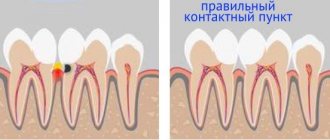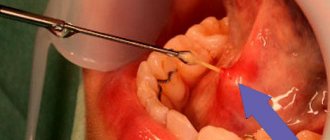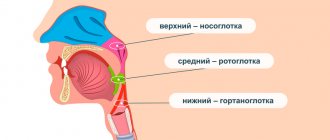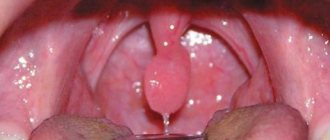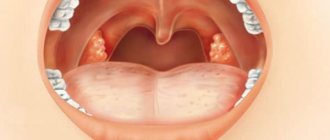In most cases, the term “neurosis” is associated with emotional lability, irritability, and a general deterioration in well-being. But sometimes neurotic disorders manifest themselves with completely unexpected symptoms, which causes an incorrect diagnosis and, accordingly, ineffective treatment. In some cases, the tongue may react to stressful situations and anxiety during neuroses. There is a distinct discomfort that is not associated with organic pathologies of the oral cavity. This condition is called glossalgia or language neurosis. Medicines prescribed by general practitioners either do not work or have only a short-term effect, but doctors at the Leto mental health center, if the psychogenic nature of the disease is suspected, offer a comprehensive examination to exclude somatic diseases. After confirming the diagnosis, we select psychotherapy tactics and, if necessary, add medications.
Causes of glossalgia
As with other somatoform neurotic disorders, the etiology of language neurosis is closely related to the influence of stress factors. This is any situation that is psychologically traumatic for a person, for example:
- conflicts in the family, serious quarrel with relatives, betrayal of a spouse, divorce;
- demotion (or lack of long-awaited career advancement), job loss;
- personal or global financial crisis, especially against the backdrop of the need to make regular loan payments;
- suffered a serious illness and fear of re-illness (relapse);
- any disaster (experienced earthquake, flood, fire, transport accident, etc.).
Persons who tend to repeatedly exaggerate the scale of existing problems are predisposed to language neurosis. Usually they lack optimism, do not like fun, do not like to joke themselves, and avoid noisy companies for fear of appearing funny. They are very demanding of others and are afraid of losing control of the situation. Therefore, in families where one or both parents have signs of a neurotic syndrome, the unquestioning authority of the father or mother usually “reigns”, children suffer from overprotection.
Symptoms of tongue neurosis
The syndrome has a very variable clinical picture; often the patient himself cannot find the appropriate words to describe his feelings. But the most common complaints are:
- tingling, numbness, itching, burning of the tongue, lips and oral mucosa;
- sensations of puffiness, swelling and heaviness of the tongue, as if it had been “sprinkled with pepper” or “scalded with boiling water”, dry mouth;
- impaired taste sensitivity, decreased salivation, often against this background appetite worsens and weight decreases;
- raw pain in the palate, tonsils, back of the throat;
- partial numbness of the mucous membrane;
- sensation of a foreign body in the mouth.
Discomfort occurs periodically; at the initial stage of the disorder, the duration of this kind of “attack” is 2–5 minutes, gradually unpleasant sensations appear more and more often and become permanent over time. Numbness of the tongue during neurosis, like other symptoms of the disorder, increases with the consumption of alcohol, peppery foods, pickles, too cold or vice versa, hot food and drinks.
The patient is convinced that because his tongue is swollen, he cannot speak clearly. A person reduces communication to a minimum, prefers correspondence to conversation and personal meetings, which does not have the best effect on speech functions and socialization skills in general.
A coated tongue during neurosis is uncharacteristic; the presence of plaque indicates the presence of a bacterial or viral process, but it is possible that it is of a secondary nature. For example, due to severe discomfort, a person constantly touches his face and lips with his hands, which provokes the development of an infectious process.
In addition, glossalgia often leads to a decrease in local immune defense. That is why tongue neurosis is often accompanied by stomatitis, laryngitis, chronic tonsillitis and/or pharyngitis.
Symptoms from the psycho-emotional sphere are also characteristic. A person experiences constant anxiety and internal tension. Characterized by insomnia with nightmares and restless dreams, irritability and intolerance, gloominess.
Why does there be a feeling of a foreign body in the throat?
Acute infections
The sensation of a foreign body is provoked by swelling, inflammation, accumulation of sputum, and plaque formation. It is detected in infectious diseases such as:
- ARVI.
The manifestation is insignificant, disturbing at the initial stage of the disease, complemented by weakness, weakness, moderate redness of the throat, general hyperthermia, and muscle pain. - Measles.
The symptom occurs with the onset of the first wave of fever and is more pronounced in children. The pharynx is hyperemic, the posterior wall of the pharynx is granular. The face is swollen. After 3-5 days, the condition improves and characteristic rashes form on the skin. - Diphtheria.
Accompanied by the formation of fibrinous plaque first, then a dense smooth coating. With widespread damage to the oropharynx, involvement of the larynx and trachea, breathing disorders and the development of diphtheria croup are possible. - Scarlet fever.
The throat is bright red, painful, sometimes there is involvement of the tonsils and enlargement of the cervical lymph nodes. A little later, the tongue and lips also become bright red, a pinpoint rash appears on the face and upper body, spreading to the limbs.
Inflammatory diseases of the ENT organs
In acute inflammation, the symptom does not have a clear localization, occurs suddenly, quickly reaches a significant degree of severity, and disappears after a few days. Chronic inflammatory processes are accompanied by periodic moderate or slight sensation of a foreign body, which is more disturbing during periods of exacerbation.
- Tonsillitis.
The tonsils are hyperemic, enlarged in volume, covered with superficial films, multiple small yellowish-white foci or loose plaque. Sore throat, general hyperthermia, and symptoms of intoxication are observed. With chronic tonsillitis in the acute phase, all symptoms are smoothed out. - Pharyngitis.
When examining the pharynx, swelling and diffuse hyperemia are revealed. The general condition remains normal, sometimes there is weakness and an increase in temperature to low-grade levels. In the chronic form, one part of the pharynx is predominantly affected: the oropharynx, nasopharynx or hypopharynx. - Laryngitis.
The patient complains of scratching, soreness, and tickling in the lower parts of the throat. The voice becomes hoarse; in severe cases, the patient speaks in a whisper. There is a paroxysmal dry cough. The symptom is more noticeable in phlegmonous and infiltrative forms. Chronic laryngitis is manifested by coughing, the need to periodically clear the throat, and rapid voice fatigue.
Laryngeal sore throat is accompanied by the same symptoms as acute laryngitis, but is characterized by a more severe course. The pain in the throat is so severe that patients refuse to eat and take a forced position.
Purulent processes
Abscesses in the throat area occur with sore throat, and less often result from rhinitis, pharyngitis, or sinusitis. Sometimes they develop with otitis media, mastoiditis, mumps, and are formed against the background of acute infections or carious teeth. The sensation of a foreign body has a clearer localization than in inflammatory pathologies, appears on the side or in the central part of the throat, and is accompanied by significant hyperthermia and severe intoxication. Detected under the following conditions:
- Peritonsillar abscess.
It manifests itself as sharp, rapidly intensifying pain when swallowing. The pain becomes tearing and radiates to the ear and lower jaw. There is a tilt of the head towards the affected area and a putrid odor from the mouth. Possible trismus. - Retropharyngeal abscess.
It is accompanied by extremely intense pain, forcing patients to refuse food. When the abscess is located in the upper part of the pharynx, nasal breathing disturbances and nasal sounds are observed; in the middle and lower parts - difficulty breathing and hoarseness. - Epiglottitis.
Signs of a purulent process are combined with breathing problems. The patient complains of pain in the lower part of the throat. Hoarseness and muffled voice, wheezing, cyanotic lips and nasolabial triangle, and tachycardia are detected.
Ludwig's angina is one of the most common purulent processes. The sensation of a foreign body appears when the pharynx is involved, accompanied by severe fever, swelling of the neck, breathing problems, loss of voice, and drooling.
Sensation of a foreign body in the throat
Traumatic injuries
The sensation of a foreign body in the throat may indicate the presence of a foreign object or injury caused by the object as it passes through the throat. The cause of the symptom is fish bones, crackers, fruit and berry seeds. Children sometimes swallow inedible objects with sharp edges, such as building blocks. With thermal and chemical burns, discomfort in the throat occurs due to swelling and damage to the mucous membrane.
Tumors
The symptom is included in the typical clinical picture observed with benign neoplasms of the pharynx and is combined with a sore throat, nasal voice, and difficulty in nasal breathing. Slowly builds up over a long period of time. It is detected with papillomas, fibromas, and hairy pharyngeal polyps. It is noted for angiomas, neuromas, and pharyngeal cysts. With benign neoplasia of the larynx, complaints of the sensation of a foreign object are less common, and voice changes prevail.
In patients with pharyngeal cancer, the sensation of a foreign body is the first symptom of the disease. Later, pain, choking, difficulty swallowing, and sensitivity disorders occur. Manifestations quickly progress, complemented by general signs of the oncological process - weight loss, weakness, intoxication. The symptom is also characteristic of laryngeal cancer, affecting the upper parts of the organ.
Allergy
The symptom is observed in allergic reactions accompanied by swelling of the throat. It appears suddenly. The patient is bothered by sneezing, nasal congestion, lacrimation, sore throat, itchy skin. In the spring-summer period, allergies are provoked by contact with plant pollen, throughout the year - with wool, dandruff, feathers of animals and birds, house dust, and food products. The most striking picture is observed with Quincke's edema.
Thyroid pathologies
The thyroid gland is located near the upper part of the trachea, its enlargement causes irritation of the receptors, causing the sensation of a foreign body. The symptom is detected in the following pathologies:
- Iodine deficiency conditions
: diffuse euthyroid goiter, nodular goiter. - Mainly hyperthyroid conditions
: diffuse toxic goiter, thyroiditis (subacute, autoimmune, others). - Benign and malignant tumors
: adenomas, cysts, lymphomas, thyroid cancer.
Digestive system diseases
Foreign body sensation is sometimes accompanied by GERD. Patients complain that they want to drink water or cough to get rid of a foreign object. The symptom is provoked by constant irritation of the receptors with acidic contents thrown into the upper parts of the digestive tract during reflux. A distinctive feature is the increase in discomfort when lying down. With dyskinesia of the esophagus, the symptom appears due to a violation of the passage of the food bolus due to a disorder in the motility of the organ.
Dental diseases
Patients with certain tongue pathologies complain of a feeling of a foreign body in the throat: black hairy tongue, papillomatous form of rhomboid glossitis. In the first case, there is a significant increase in taste buds in the posterior and middle thirds of the tongue, coloring the affected area in black and dark brown shades. With rhomboid glossitis, pale pink growths appear on the tongue.
The symptom accompanies benign and exophytic malignant tumors of the oral cavity if they are located on the root of the tongue or in the palate. In addition, the sensation of a foreign body occurs with the stylopharyngeal variant of stylohyoid syndrome.
Neurosis of the pharynx
Initially, the sensation of a coma (foreign body) in the throat was described as a typical symptom of hysteria. Currently, along with hysteria, the causes of pharyngeal neurosis include astheno-neurotic syndrome and severe stress. Pathology can also be observed in cervical osteochondrosis, intervertebral hernia, spondylolisthesis, and certain diseases of the nervous system (neoplastic tumors, stroke, multiple sclerosis).
Throat examination
Diagnosis of tongue neurosis
The fact is that the etiology of numbness, coating on the tongue and other manifestations of oral discomfort is sometimes not associated with stress. The reasons for such unpleasant sensations may be:
- Diseases of the digestive tract. In particular, the backflow (reflux) of intestinal contents into the trachea causes pain and a burning sensation in the throat and tongue.
- Circulatory disorders due to cardiac disorders.
- Neurological and endocrine pathologies.
- Allergic reaction to topical medications (rinses, lozenges, etc.).
- Infection of the oral cavity (usually stomatitis, fungal diseases).
Often characteristic symptoms occur after visiting the dentist. Glossalgia often appears after prosthetics due to injuries during orthopedic manipulations, allergies to the material from which the prostheses are made. The syndrome can also be a consequence of malocclusion, constant injury to the oral mucosa by unsuccessfully placed fillings, or dental plaque.
Many experts forget about the rather rare, but noteworthy syndrome of “galvanism” - insignificant electrical discharges that appear in the mouth in the presence of fillings or prostheses made of metal alloys, due to which the tongue becomes numb and pain appears.
To exclude the somatic etiology of the disorder, consultation with a dentist, ENT specialist, neurologist, cardiologist and gastroenterologist is necessary. The patient is also asked to take a general and biochemical blood test and do an ECG. It is advised to undergo a study to determine the indicators of local immunity of the oral cavity, assess the enzymatic activity of the salivary fluid, the content of protein and other elements in it, and the pH level.
Numbness of the tongue
When the functions of the autonomic nervous system are disrupted, blood pressure changes, muscle tone increases, and blood vessels narrow. The resulting spasms lead to the tongue going numb during VSD. The cause of discomfort may be excessive production of adrenaline by the adrenal glands.
Numbness of the tongue can occur due to emotional stress, compression of blood vessels due to cervical osteochondrosis, as well as pathologies of the cardiovascular system. The patient's condition with VSD worsens as a result of worries due to numbness of the tongue and face. To normalize psycho-emotional standing and treat VSD, you should contact a specialist who will select safe and effective means.
Neurologists at the Yusupov Hospital have extensive experience in treating various types of vegetative-vascular dystonia. When a patient comes in with complaints of numbness of the tongue, a feeling of a lump in the throat, a diagnosis is carried out. The main diagnostic methods for VSD are:
- general examination of the patient;
- blood and urine tests;
- palpation;
- Magnetic resonance imaging.
Treatment of VSD at the Yusupov Hospital is carried out according to an individual program, which is developed by highly qualified specialists.
Cost of services
| CONSULTATIONS OF SPECIALISTS | |
| Initial consultation with a psychiatrist (60 min.) | 6,000 rub. |
| Repeated consultation | 5,000 rub. |
| Consultation with a psychiatrist-narcologist (60 min.) | 5,000 rub. |
| Consultation with a psychologist | 3,500 rub. |
| Consultation with Gromova E.V. (50 minutes) | 12,000 rub. |
| PSYCHOTHERAPY | |
| Psychotherapy (session) | 7,000 rub. |
| Psychotherapy (5 sessions) | 30,000 rub. |
| Psychotherapy (10 sessions) | 60,000 rub. |
| Group psychotherapy (3-7 people) | 3,500 rub. |
| Psychotherapy session with E.V. Gromova (50 minutes) | 12,000 rub. |
This list does not contain all prices for services provided by our clinic. The full price list can be found on the “Prices” , or by calling: 8(969)060-93-93. Initial consultation is FREE!
Principles of treatment
The treatment regimen proposed by the doctors of the Leto clinic is aimed at restoring normal psycho-emotional status, eliminating symptoms that bother the patient and preventing secondary complications. If the tongue twitches during neurosis or other symptoms of the syndrome are pronounced, drug treatment is indicated. It includes:
- sedatives;
- non-benzodiazepine anxiolytics;
- according to indications (for example, for severe insomnia) - antipsychotics;
- B vitamins, tocopherol, omega complex;
- nicotinic and ascorbic acid, drugs based on adenosine triphosphoric acid, glycine;
- iron supplements.
Various physiotherapeutic procedures that have a relaxing and calming effect have proven themselves well. We recommend:
- massage of the collar area;
- ozone and oxygen therapy;
- transcutaneous and transcranial electrical stimulation;
- hirudotherapy;
- laser therapy.
Regardless of clinical manifestations, neurotic disorders are an indication for consultation with a psychologist. The doctor will help the patient understand the cause of such unpleasant sensations, tell him how to properly respond to conflict and stressful situations, and help him find a solution to the problems that bother him.
Tongue neurosis is a rare disease, but quite amenable to outpatient treatment. You can get more detailed information from our consultants by calling 24/7 anonymous phone number 8(969)060-93-93 .
Sore throat
Discomfort and sore throat with VSD occurs due to spasms of the muscles of the pharynx and larynx. If patients feel a lump in the throat during VSD, an experienced neurologist at the Yusupov Hospital will tell you how to get rid of this symptom.
A sore throat occurs in patients with VSD during the daytime. Many people experience serious stress when this symptom appears, as they consider discomfort in grief to be a manifestation of dangerous diseases, such as a malignant tumor or goiter of the thyroid gland. To eliminate throat discomfort, many people prefer to drink water, which brings temporary relief, but to completely eliminate the symptom, it is necessary to get rid of the root cause.
